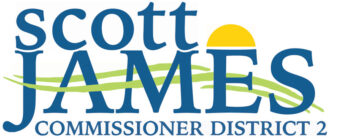Sorry, I am late to comment on this now week old article from Newsweek about the Supreme Court refusing to take up a case brought by a teen who alleged that his science teacher used Snapchat to lure him into a sexual relationship.
Here’s my Five Bullet Point Brief of that article…
- Supreme Court Justice Clarence Thomas has cautioned about potential dangers relating to the recent Supreme Court decision.
- He has outlined his concerns over the Supreme Court’s decision to reject a Pennsylvania GOP request to overturn the 2020 Presidential Election results.
- According to Thomas, the decision brings up unanswered constitutional questions about the legality of such changes in election law.
- Despite these concerns, Thomas was outnumbered in the court, with the majority not providing reasons for the denial.
- This situation is described as an example of the lingering conflicts within the Supreme Court over the 2020 election results.
I literally left this article on an open browser tab so I would be reminded to offer an opinion. Then it sat there for a week or so. Regardless of the passage of time, the principle remains the same. I am a staunch defender of the 1st Amendment – of the entire constitution, for that matter – but this goes beyond a free speech issue.
Social media giants have hid behind the immunity that Section 230 supposedly provides. Section 230 of the Communications Decency Act, enacted in 1996, grants immunity to online platforms from being held liable for content posted by third parties on their platforms. This section essentially shields online platforms from legal responsibility for user-generated content, allowing them to moderate their platforms without being treated as publishers of the content.
To provide a crude example, “yelling fire in a crowded theater” is NOT protected speech. What Section 230 does is protects a social media behemoth from liability if @ScottKJames yells fire on X. I understand and somewhat respect the concept.
However, like most things, it has been twisted. Recently, the Supreme Court sided with the Biden Administration who claims it is an okay thing for the government to collaborate with social media platforms to suppress and censor speech. I vehemently disagree if the speech is political or opinion in nature. The Biden administration contends that it has sought only to “mitigate the hazards of online misinformation.” Well, who determines if it’s misinformation? We should all read Orwell again – Mintrue, anyone?
However, social media platforms are being weaponized by human and drug traffickers to further their particular brand of evil. Take from the father of an 18-year old son who has had his share of battles – anything your child desires can be found by a willing “plug” on the other end of a Snapchat message.
If social media companies are more than willing to deploy an army of fact checkers and censors to squash otherwise free political speech they deem “misinformation,” they can do the same for those using their platforms to prey on our children or sell them that which is illegal for them to buy. You can’t claim one is protecting the American public and hide behind Section 230 on the other.
Parents, beware, and all citizens need to be aware of the use and misuse of Section 230. Because Justice Thomas is right – danger exists on social media.


